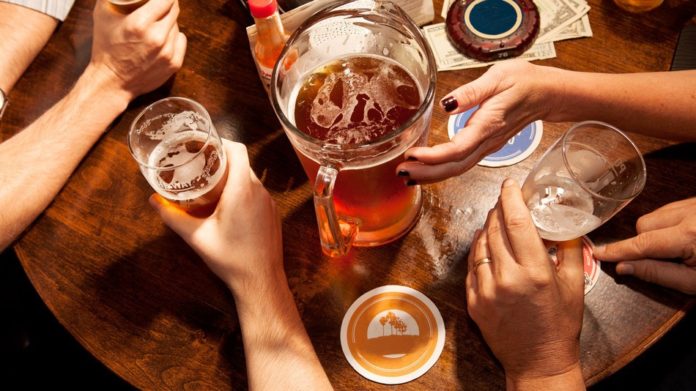You’re probably not an alcoholic, study says

A majority of Americans who drink too much booze are not, in fact, classifiable as alcoholics, a government study says.
The study, released by the Centers for Disease Control and Prevention (CDC) and the Substance Abuse and Mental Health Services Administration (SAMHSA), finds that while one in three adults are binge-drinking tipplers, nine in ten of those adults are not full-blown alcohol dependent.
“Contrary to popular opinion, most people who drink too much are not alcohol dependent or alcoholics,” said Robert Brewer, M.D., M.S.P.H., Alcohol Program Lead at CDC. “It also emphasizes the importance of taking a comprehensive approach to reducing excessive drinking that includes evidence-based community strategies, screening and counseling in healthcare settings, and high-quality substance abuse treatment for those who need it.”

Image: CDC
In fact, the CDC says, just one in every 30 adults are dependent on alcohol.
Alcohol dependency is a chronic medical condition that the CDC says “typically includes a current or past history of excessive drinking, a strong craving for alcohol, continued use despite repeated problems with drinking, and an inability to control alcohol consumption.”
Who are these excessive drinkers deemed not quite alcoholics? Any woman who, in the last 30 days, partook in four or more drinks on one occasion, or five or more drinks on one occasion for men, according to the CDC.
On a weekly basis, if you consume eight or more drinks a week for women or 15 or more drinks a week for men, then yes, you are an excessive drinker.
The government isn’t exactly giving excessive drinkers a pass. In fact, it recommends a few ways to help cut back on the bottle. Among them: Increasing taxes, regulating the density of liquor stores and stopping the sale of booze to minors or drunk patrons.
Also, the CDC warns an estimated 88,000 people die each year due to both long-term effects of alcohol (breast cancer, liver disease and heart disease) and the immediate (violence, alcohol poisoning and car crashes).
Have something to add to this story? Share it in the comments.
